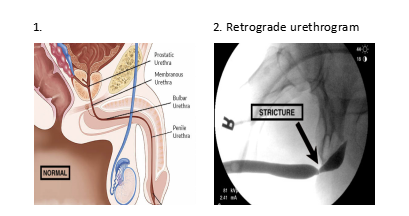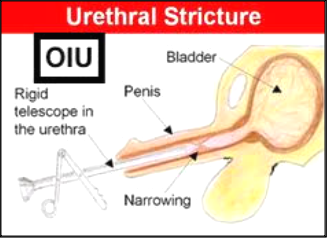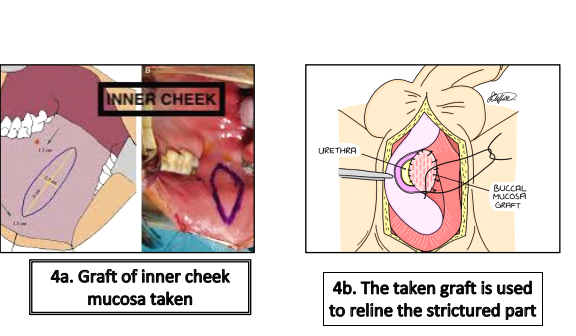Management Of Block In Urine Flow
Urine blockage treatment in chennai
Urine Management in Chennai
Management Of Block In Urine Flow
Experiencing a blockage in urine flow can significantly impact your quality of life. However, you are not alone in facing this challenge. At our esteemed urology clinic, we specialise in providing top-notch urine blockage treatment in Chennai. Our experienced team of urologists, including some of the best urinary tract obstruction doctors in Chennai, are equipped with advanced diagnostic tools and cutting-edge treatment techniques. They are dedicated to providing comprehensive and personalised care to patients dealing with urine flow blockages.
Causes of Urine Flow Blockage
Urine flow blockages can be caused by a variety of factors, including kidney stones, enlarged prostate, tumours, or strictures in the urinary tract. These conditions can lead to discomfort, pain, and other severe health issues if not addressed promptly.
Diagnosis of Urine Flow Blockage
At Dr. Kabilan’s Complete Urology, located in the best urology hospital in Chennai, we employ advanced diagnostic techniques to accurately identify the cause of urine flow blockages. Our diagnostic approach includes:
- Ultrasound and Imaging: Non-invasive imaging techniques to visualise the urinary tract.
- Urodynamic Testing: Measures the function of the bladder and urethra.
- Cystoscopy: A detailed examination of the bladder and urethra using a thin, lighted scope.
Other Treatments
- Keyhole And Laser Treatment Of Kidney Stones
- Laser Treatment For Prostate
- Laparoscopic Treatment Of Urological Problem
- Kidney Transplantation
- Management Of Block In Urine Flow
- Management Of Blood In Urine
- Tumours In Kidneys
- Urinary Bladder
- Penis And Prostate
- Urinary Leak And Fistula Surgery
- Male Infertility And Male Sexual Problems
- Testicular Conditions
Understanding Urine Flow Blockages
Urine flow blockages occur when there’s an obstruction or restriction in the urinary system, hindering the normal flow of urine. This can lead to discomfort, urinary retention, urinary tract infections, and other complications. Urine flow blockages can happen at various points along the urinary tract, including the urethra, bladder, ureters, or kidneys.
At Dr. Kabilan’s Complete Urology, patients can expect top-tier care for all urinary concerns. Dr. Kabilan and his team are dedicated to providing the highest quality of care, utilising the latest advancements in urological medicine. Whether dealing with a minor urinary issue or a complex blockage, Dr. Kabilan’s clinic is committed to delivering the best urine blockage treatment in Chennai.
By seeking treatment at Dr. Kabilan’s Complete Urology, patients benefit from a comprehensive approach to urine management in Chennai. The clinic’s commitment to patient care and its use of advanced medical technologies ensure that each patient receives the best possible treatment, tailored to their specific needs.



Causes and Risk Factors
Urine flow blockages can arise from various causes and risk factors. Some common factors include:
Enlarged prostate
Benign prostatic hyperplasia (BPH), also known as an enlarged prostate, is a prevalent condition among men, particularly as they age. This condition involves the enlargement of the prostate gland, which can lead to compression of the urethra, resulting in obstructed urine flow.
If you are seeking effective urine blockage treatment in Chennai, Dr. Kabilan’s Complete Urology offers comprehensive care. We specialise in urine management in Chennai, ensuring patients receive the highest standard of care for urinary tract obstructions.
Urinary stones
Urinary stones, such as kidney stones and bladder stones, can cause significant blockages in the urinary tract, leading to impaired urine flow. For those seeking expert urine blockage treatment in Chennai, Dr. Kabilan's Complete Urology offers comprehensive care and advanced solutions.
Dr. Kabilan is recognized as one of the best urologists in Chennai, providing specialised urine management in Chennai. Patients benefit from the expertise of the best urinary tract obstruction doctors in Chennai, ensuring precise diagnosis and effective treatment. The best urology hospital in Chennai, where Dr. Kabilan practices, is equipped with state-of-the-art technology to address all aspects of urinary health.
Urethral stricture
Experiencing a urethral stricture, which is a narrowing or scarring of the urethra, can lead to significant urine flow restrictions and blockages. For those seeking effective urine blockage treatment in Chennai, Dr. Kabilan’s Complete Urology offers exceptional care. Recognized as the best urology hospital in Chennai, it provides comprehensive urine management services.
Patients looking for the best urinary tract obstruction doctors in Chennai will find expert care at Dr. Kabilan’s Complete Urology. Our team, which includes the best urologists in Chennai, is dedicated to providing top-tier treatment options tailored to each patient’s needs.
Bladder or pelvic tumors
Tumours in the bladder or pelvic region can cause significant issues by obstructing the urinary tract, leading to difficulties in urine flow. For those seeking urine blockage treatment in Chennai, it is crucial to find the best urinary tract obstruction doctors in Chennai.
Dr. Kabilan's Complete Urology is renowned for offering top-notch urine management in Chennai. As the best urology hospital in Chennai, it provides comprehensive care and advanced treatment options for various urological conditions. The best urologist in Chennai, Dr. Kabilan, along with his team, ensures that patients receive the highest standard of care.
Urinary tract infections (UTIs)
Urine flow blockages due to severe or recurrent UTIs can lead to inflammation and swelling, causing discomfort and complications. At Dr. Kabilan's Complete Urology, our experienced urologists provide advanced treatments for urinary tract obstructions, ensuring effective management and relief.
If you're seeking the best urologist in Chennai for urine management, Dr. Kabilan's Complete Urology is your trusted destination. Our comprehensive approach to urinary tract obstruction treatment in Chennai ensures personalised care and optimal outcomes for every patient.


Diagnosing Urine Flow Blockages
Ensuring effective urine flow is essential for overall health. At Dr. Kabilan’s Complete Urology, located in Chennai, we specialise in diagnosing and treating urinary blockages using advanced techniques. Our expert urologists are dedicated to providing the best possible care for patients facing urinary tract obstructions.
Dr. Kabilan’s Complete Urology is renowned as the best urology hospital in Chennai for managing urine blockages. Our team of skilled urologists utilises state-of-the-art diagnostic methods to accurately identify the underlying causes and severity of urinary blockages. With a focus on precision and effectiveness, we offer top-tier urine blockage treatment in Chennai.
Medical history and physical examination
At Dr. Kabilan's Complete Urology, our team of experts begins your journey to wellness with a detailed medical history review and a thorough physical examination. Our best urologists in Chennai meticulously assess your symptoms to identify the root cause of your condition, ensuring you receive the most appropriate treatment tailored to your needs.
Urine tests
Discover the Best Urinary Tract Obstruction Treatment in Chennai at Dr. Kabilan's Complete Urology. Our top urologists offer comprehensive urine management solutions to address urinary blockages and related concerns. With advanced urine analysis and culture techniques, we identify signs of infection, blood in the urine, or other abnormalities for precise diagnosis. Visit the best urology hospital in Chennai for effective treatment and care.
Imaging tests
Imaging tests such as ultrasound, CT scan, or MRI play a crucial role in urine blockage treatment in Chennai. These imaging techniques provide detailed insights into the urinary tract, aiding in the detection of obstructions or abnormalities. Dr. Kabilan's Complete Urology offers the expertise of the best urinary tract obstruction doctors and urologists in Chennai, along with state-of-the-art facilities at the best urology hospital in the city. If you're seeking top-notch care for urine management and treatment of urinary tract issues, Dr. Kabilan's Complete Urology is the place to go.
Urodynamic tests
Looking for the best treatment for urine blockage in Chennai? At Dr. Kabilan's Complete Urology, we offer comprehensive urine management solutions led by the top urologist in Chennai. Our advanced urodynamic tests accurately evaluate bladder and urethral function, enabling us to identify any blockages or abnormalities in the urinary system.
Our team of experienced doctors specialises in urinary tract obstruction treatment, ensuring personalised care and effective solutions for each patient. If you're seeking the best urology hospital in Chennai for urine blockage, look no further than Dr. Kabilan's Complete Urology.
Treatment Options for Urine Flow Blockages
Urine flow blockages can be caused by various factors, ranging from urinary tract obstructions to underlying health conditions. At our urology clinic, we understand the importance of personalised care. That’s why we offer a range of treatment options to effectively manage urine blockages, ensuring optimal outcomes for our patients.
Our approach to urine management in Chennai is holistic, considering the underlying cause, severity of the blockage, and individual patient factors. Whether it’s a urinary tract obstruction or any other urological issue, our team is equipped with the expertise and state-of-the-art facilities to deliver exceptional care.
Looking for the best hospital for urine blockage in Chennai? At Dr. Kabilan’s Complete Urology, we offer comprehensive urine management solutions tailored to your needs. Our expert urologists specialise in treating urinary tract obstructions with advanced techniques and medications.
Depending on the cause of the blockage, our skilled urologists prescribe medications to alleviate symptoms, reduce inflammation, or treat underlying infections. Whether it’s a urinary tract infection, kidney stones, or other obstructions, our team ensures you receive the best care possible.
Are you seeking the best urine blockage treatment in Chennai? Look no further than Dr. Kabilan’s Complete Urology. Our team of expert urologists specialises in urine management, providing immediate relief and preventing complications with advanced catheterization techniques.
When faced with urinary tract obstruction, it’s essential to consult the best urologist in Chennai. At Dr. Kabilan’s Complete Urology, we are committed to delivering exceptional care and ensuring your comfort and well-being throughout the treatment process.
At Dr. Kabilan’s Complete Urology in Chennai, we specialise in advanced and minimally invasive procedures to effectively manage urine blockages. Our expert urologists utilise state-of-the-art techniques to ensure the best possible outcomes for our patients.
- Transurethral Resection of the Prostate (TURP) Experience relief from urine flow blockages caused by Benign Prostatic Hyperplasia (BPH) with TURP. Our skilled urologists perform this procedure to remove excess prostate tissue, restoring normal urine flow and improving quality of life.
- Urethral Dilation Our specialised tools and dilators are used for urethral dilation, effectively widening the narrowed urethra. This procedure is aimed at enhancing urine flow and relieving discomfort associated with urinary tract obstruction.
- Laser Ablation or Incision Experience cutting-edge treatment with laser ablation or incision. Our urologists utilise laser energy to vaporise or cut through obstructive tissue, such as prostate tissue or urethral strictures, providing lasting relief from urine blockages.
Are you seeking effective solutions for urinary blockage in Chennai? Look no further than Dr. Kabilan’s Complete Urology. We offer advanced treatments and expert care to manage urinary tract obstructions. Our team comprises the best urologists in Chennai, dedicated to providing top-notch care.
Surgical interventions may become necessary in severe cases of urinary tract blockage. Our services include:
- Prostate Surgery: Our experienced surgeons perform open or robotic-assisted procedures to eliminate obstructive prostate tissue, offering relief from BPH.
- Urethroplasty: We specialise in reconstructive surgery to repair and widen narrowed urethras, ensuring proper urine flow.
- Tumour Removal: For patients with bladder or pelvic tumours causing blockages, our surgical team excels in precise tumour removal procedures.
Choose Dr. Kabilan’s Complete Urology for the best urinary tract obstruction treatment in Chennai. Our urology hospital in Chennai is renowned for its expertise and patient-centred care. Contact us today for comprehensive urine management solutions.
When it comes to urine blockage treatment in Chennai, Dr. Kabilan’s Complete Urology offers comprehensive solutions, including effective lifestyle modifications. Our team of experienced urologists understands the importance of dietary adjustments, fluid management, and pelvic floor exercises in improving urine flow and preventing blockages.
At Dr. Kabilan’s Complete Urology, we take pride in having the best urologists in Chennai who are dedicated to providing the highest quality care. Our urology hospital is renowned for its expertise in urinary tract obstruction treatment, ensuring that our patients receive top-notch care and optimal outcomes.
Support and Follow-up Care
At Dr. Kabilan’s Complete Urology in Chennai, we specialise in providing top-tier treatment and management for urinary tract obstructions, ensuring your utmost comfort and well-being.
Our urology clinic in Chennai offers the best solutions for urine blockages, managed by leading urologists dedicated to your care. We understand the challenges, both physical and emotional, that come with urine flow blockages. That’s why we provide comprehensive support and follow-up care to address your needs effectively.
If you’re experiencing symptoms of urine blockage, don’t hesitate to contact us. Our team of experts is here to provide you with the best possible care and treatment for your condition.
Counseling
Experience top-notch Urine Management and Treatment at Dr. Kabilan's Complete Urology, the premier destination for urinary tract care in Chennai. Our team, comprising the finest urologists and dedicated counsellors, provides unparalleled emotional support and guidance throughout your treatment journey. Trust in the expertise of the best Urinary Tract Obstruction Doctors and urologists in Chennai, and receive exceptional care at the best urology hospital for urine blockage in the city.
Rehabilitation
At Dr. Kabilan's Complete Urology in Chennai, we offer top-notch urinary blockage treatment and management. Our team of expert urologists provides the best care for urinary tract obstructions. We are renowned as the best urology hospital in Chennai, specialising in treating urine blockage with personalised rehabilitation plans. Our collaboration with rehabilitation specialists ensures comprehensive recovery after surgical procedures. Trust Dr. Kabilan's Complete Urology for the best urological care in Chennai.
Regular follow-up visits
Ensure your urinary health is in good hands with regular follow-up visits at Dr. Kabilan's Complete Urology in Chennai. Our team of expert urologists specialises in urine blockage treatment and urinary tract obstruction management. We are renowned as the best urology hospital in Chennai, led by the best urologists in the field. During your follow-up visits, we closely monitor your progress, address any concerns you may have, and make necessary adjustments to your treatment plan for optimal results. Trust us for the best care for urine blockage in Chennai.
Discover the Premier Destination for Urine Flow Blockage Management in Chennai
Are you seeking top-tier urine blockage treatment in Chennai? Look no further than Dr. Kabilan’s Complete Urology, the leading authority in urine management in Chennai. Our esteemed clinic stands out for several reasons:
- Expertise: At Dr. Kabilan’s Complete Urology, our team comprises seasoned urologists specialising in the effective management of urine flow blockages.
- Cutting-edge Technology: We are committed to employing state-of-the-art diagnostic equipment and treatment techniques, ensuring precise diagnosis and effective treatment.
- Personalised Care: Understanding the uniqueness of each patient’s condition, our urologists craft tailored treatment plans, meticulously addressing individual needs and circumstances.
- Multidisciplinary Approach: Collaborating seamlessly with other specialists including radiologists and oncologists, we provide comprehensive and coordinated care throughout your treatment journey.
- Compassionate Support: Prioritising your well-being, we offer empathetic emotional support, counselling, and rehabilitation services, aiding you in navigating the challenges associated with urine flow blockages.
Take the First Step Towards Relief
If you’re experiencing urine flow blockages, you need not suffer in silence. Our dedicated team of urologists at Dr. Kabilan’s Complete Urology is here to guide you, offering expert care to restore your comfort and well-being. Contact our urology clinic today to schedule a consultation and embark on the journey towards effective urine flow blockage management in Chennai.
